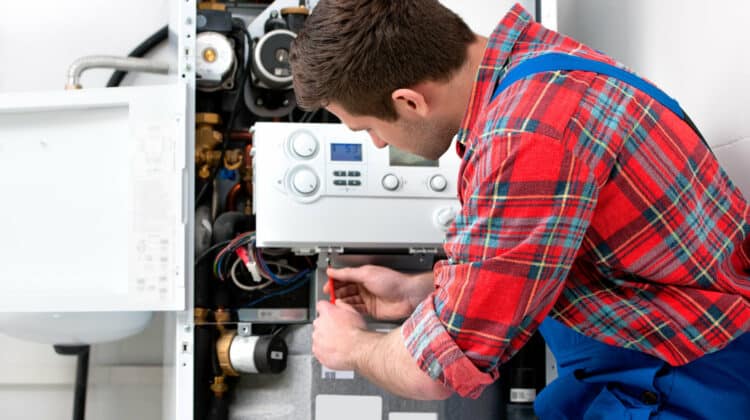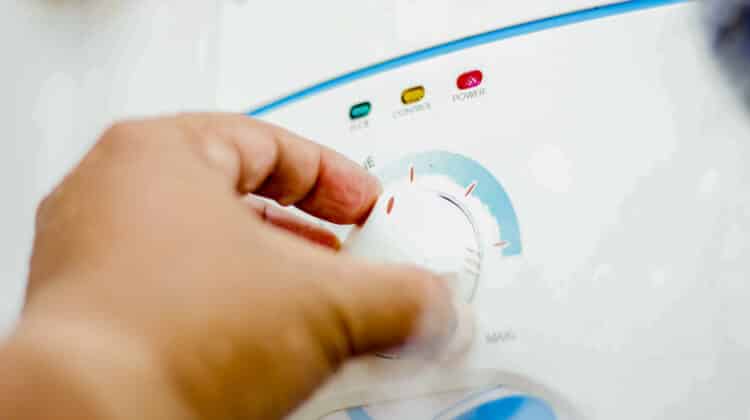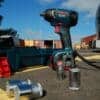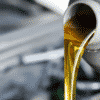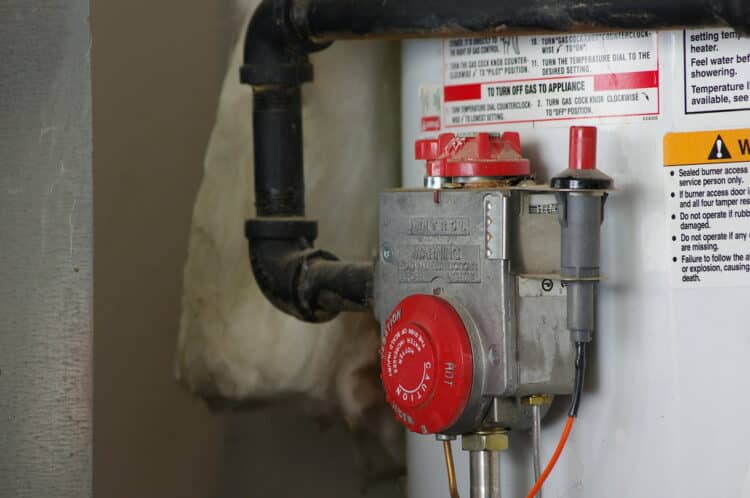
Your water heater should not be whistling. Any whistling or other strange noises coming from your water heater is a sign that a part has some kind of problem. Your water heater whistling, knocking, or banging is a cry for urgent attention.
Sometimes, you will have to call in a certified technician to deal with these issues. It helps to be prepared. Having an idea of what is wrong will help you take part in the conversation. You can make informed decisions about the right step to take.
Other times, it may be a problem you can take care of yourself.
Our article will help you get to the bottom of the problem. Knowing what is wrong is the only way to make better, cost-effective decisions for repairs.
Table of Contents
Noises Coming From Water Heater Units
Well, that depends on the type of noise you hear. In the introduction, we mentioned a few of the weird noises your water heater may make. Here are a few more words that can describe the noises you hear coming from your water heater.
- Whirring
- Screaming/Screeching/Singing
- rumbling
- humming
- sizzling
- crackling
- whining (high-pitched noise)
- popping
- hammering
- Ticking/Tapping
Before you begin to panic, some noises only need basic maintenance. Identify the noise your water heater makes to find a solution.
Why Is My Water Heater Making Weird Noises?
Hot Water Heater Popping Noise
Hearing a popping noise is a sign of sediment collecting in the tubes of the heating elements. Some people also describe this sound as crackling.
Water flow disturbs the sediment, which is why you hear the crackling and popping noises. But this problem is more common in older water heaters.
Catching and fixing this problem early will stop the noise. You only need to clean the element.
Ignoring this problem will cause the heating element in your water heater to malfunction. As it worsens, you will have to replace the element.
Element replacement is a simple process you can do yourself.
The rumbling noise you hear coming from your water heater is the result of sediment in the tank. Water flow displaces the sediments, and that’s what you hear. But this is also an easy fix.
You only need to clean and drain the tank.
Water Heater Making Humming Noise
In electric water heaters, a humming noise means the heating element has a problem. In this situation, it is also water flowing around the heating element that causes the humming vibrations. But this is also an easy fix.
Tighten the element screws, and that should solve the issue.
Water Heater Knocking Sound
The knocking sound that you hear from your water heater is called water hammering.
It is caused by:
- Internal heating in pipes.
- An abrupt stop to water flow from a high-pressure valve.
Because the water has no place to go, it slams into the pipes.
When this happens, it causes the plumbing system to jerk and knock into walls. The pipes can also knock into other pipes and the appliance they connect.
Install an arrestor to solve this problem. It is a simple project that you can do yourself in a few minutes.
Water Heater Making High Pitched Noise
Screaming/screeching/singing you hear from your water heater could a valve. You might not have opened one valve all the way.
Give the valves a quick check to see if the water has enough space to flow.
Water Heater Making Ticking/Tapping Noise
This sound is normal for water heaters to make. It is the sound of the heat trap at work. The heat trap keeps the water flowing into the correct pipes.
You’ve tried these methods. But you’re still thinking, ‘why is my heater making noise? It’s time to focus on something else.
TPR Valve
A TPR Valve is the temperature/pressure relief system of your water heater. If the temperature or pressure in your unit gets to a dangerous level, the TPR valve release the water. They are there to ensure your water heater doesn’t explode.
If the TPR malfunctions, the water gets too hot. It can lead to a crack in the water heater tank. If left unchecked, then the crack will lead to an explosion.
Crack In Tank
Air can blow into or out of the crack in the water heater, which can cause the whistling you hear. If you notice that your water heater tank is damaged, you should seek professional help to fix it right away.
Worn Inlet/Outlet Connections
The inlet on your water heater lets in cold water. The outlet allows the hot water to flow out. Over time, the performance of these parts wears out. Wearing of the connections happens faster in the outlet for hot water. If you hear a whistling sound and notice your hot water tap(s) leaking, check the inlet/outlet connections.
Most likely, corrosion has set in the connections. They need replacement as soon as possible. It’s the only way to prevent further damage to your water heater system.
Drain Valve
A loose drain valve makes the same kind of noise that worn inlet/outlet connections make. Air passes through that space in the loose valve and makes a whistling noise. But if you tighten the valve, that should solve the noise problem.
You can find the drain valve at the base of the water heater.
The Anode Rod
A high pH level in your water supply can mess with anode rods made of aluminum. Together they make the mineral aluminum hydroxide. That reaction causes a gel-like material to form on the inside base of the tank.
If you hear your hot water heater making popping noises, the anode rod could be the problem. But it is not one you can flush to fix.
Once this occurs, you need to flush the system and put in a new anode rod.
Conclusion
Water heaters are often installed and forgotten. But, the older your water heater gets, the more noises it will start to make. If you detect the causes of the strange noises in your water heater, you can avoid further damage. You will also spend less money on repairs.
But, the only way you can do that is with regular maintenance.
Help your water heater work better and last longer by being a diligent water heater owner.

